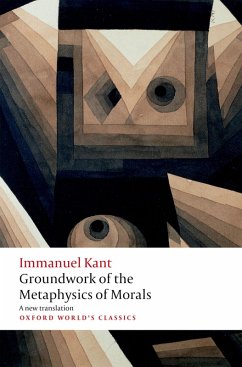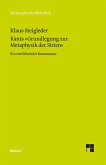[T]he present groundwork is nothing more than the identification and vindication of the supreme principle of morality.' In the Groundwork for the Metaphysics of Morals (1785), Immanuel Kant makes clear his two central intentions: first, to uncover the principle that underpins morality, and secondly to defend its applicability to human beings. The result is one of the most significant texts in the history of ethics, and a masterpiece of Enlightenment thinking. Kant argues that moral law tells us to act only in ways that others could also act, thereby treating them as ends in themselves and not merely as means. Kant contends that despite apparent threats to our freedom from science, and to ethics from our self-interest, we can nonetheless take ourselves to be free rational agents, who as such have a motivation to act on this moral law, and thus the ability to act as moral beings. One of the most studied works of moral philosophy, this new translation by Robert Stern, Joe Saunders, and Christopher Bennett illuminates this famous text for modern readers.
Dieser Download kann aus rechtlichen Gründen nur mit Rechnungsadresse in A, B, BG, CY, CZ, D, DK, EW, E, FIN, F, GR, HR, H, IRL, I, LT, L, LR, M, NL, PL, P, R, S, SLO, SK ausgeliefert werden.


